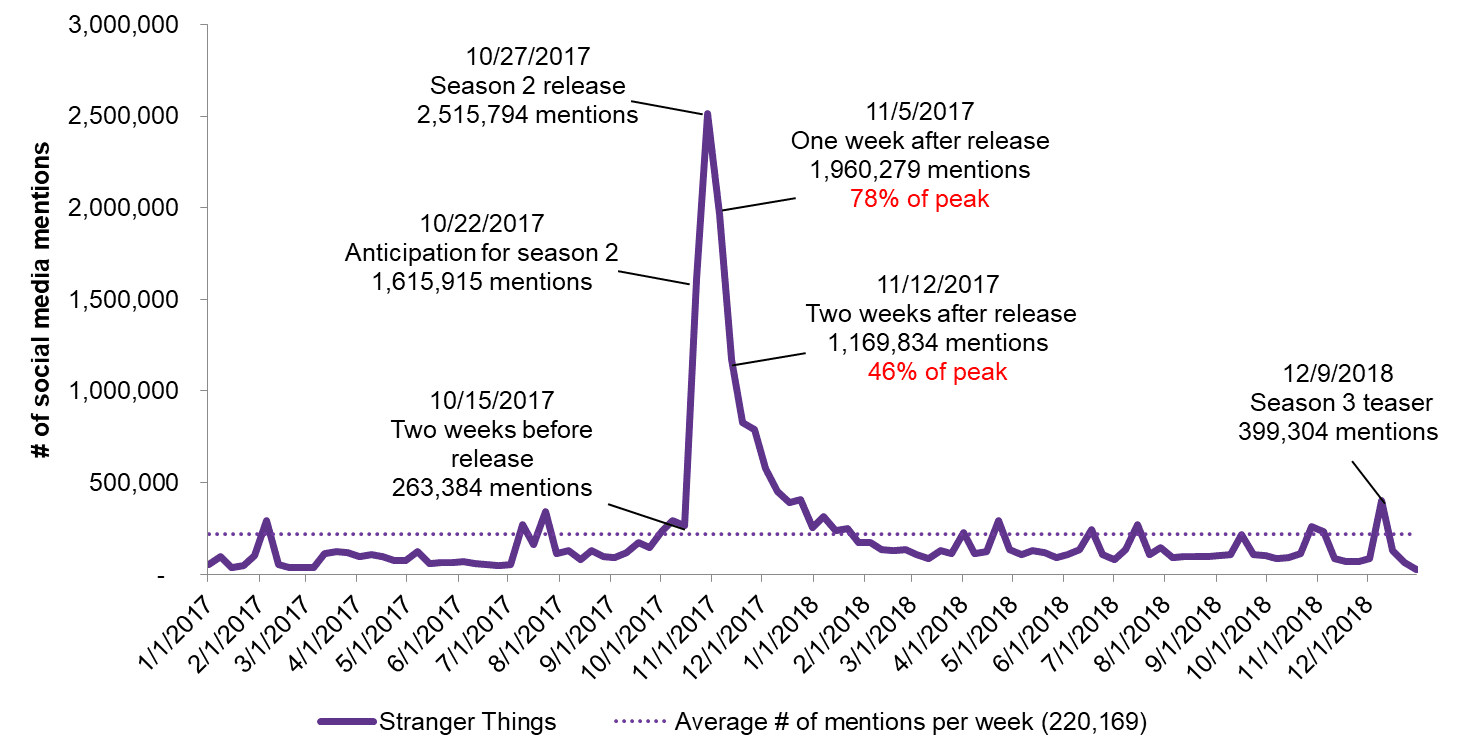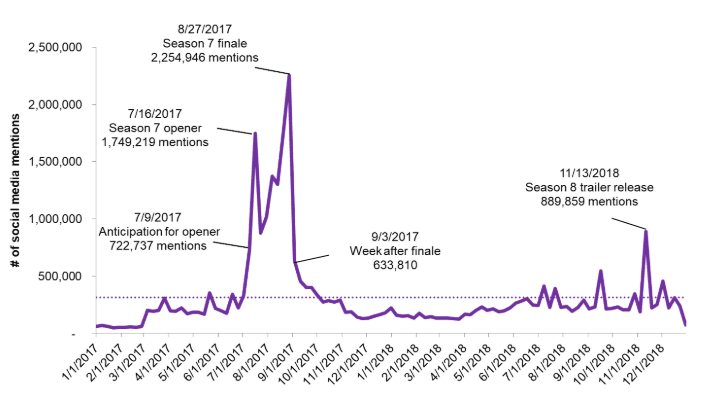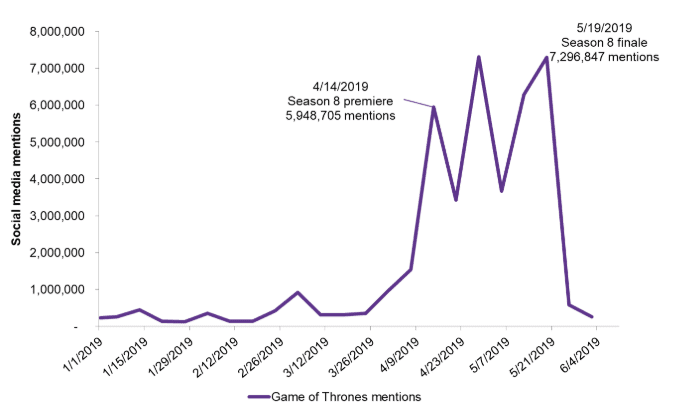Millions of viewers are expected to tune in and stream Netflix’s (arguably) most popular show, Stranger Things when the streaming giant unloads the complete third season on July 4th. However, fans of the science fiction-horror hit may hear this response when discussing the latest adventures of Eleven and gang:
“Wait! I haven’t watched that episode yet!”
Netflix’s practice of releasing an entire season of its TV shows at once has been an admittedly pleasant change of pace for viewers with a lot of free time. There are many viewers that will end up binge-watching the entire season within the first couple of days, including the more than four in 10 Canadian TV viewers say they like to binge-watch TV shows. Those that don’t will likely be left out of the conversation.
Netflix binge-releasing entire seasons of its shows creates tension between bingers and casual viewers, limiting the discussions of the shows themselves, which devalues the cultural impact of Netflix’s most popular hits such as Stranger Things.
Binge-watchers have to be careful when talking about the shows they watch. Posting spoilers before friends and family have a chance to watch could cause issues, so binge-watchers have to limit the scope of their discussion and take extra precaution with what they say and where they say it.
By the numbers
Two weeks before the release of Stranger Things season two, social media mentions were slightly above the average for 2017-18, and skyrocketed in the week before in anticipation of the release. Social media mentions of Stranger Things peaked during the week of the release at more than 2.5 million, but the peak was short-lived and dropped precipitously over the following two weeks, falling to 1.17 million mentions, 46% of the peak of the release.
Stranger Things weekly social media mentions, 2017-18

Season two of Stranger Things had nine episodes, which under a traditionally scheduled format would run for just over two months. Even expanding releases to two per week would extend Stranger Things’ run-time to an entire month.
Traditionally scheduled programs have more sustained social media discussions during their run-time, meaning Netflix is missing out on weeks of elevated social media discussions on their popular shows. While social media mentions typically dip after a premiere for a TV show, the season finale is often more discussed than the season premiere. For Stranger Things, the premiere and the finale are available immediately, losing the opportunity for elevated discussion during its run-time as well as the peak for the highly anticipated finale.
Game of Thrones weekly social media mentions, 2017-18

Bigger than Game of Thrones?
By many metrics, Stranger Things should be an even bigger cultural hit than Game of Thrones; Game of Thrones has the benefit of a book following and seven seasons under its belt to build a devoted fan base, but Stranger Things has a wider reach with more viewers with Netflix than HBO. For the duration of April 2018 through November 2018 – the off-season for both programs – overall viewership of Netflix and Stranger Things were better than HBO and Game of Thrones, according to Mintel research. Netflix has more subscribers and Stranger Things also has a wider age appropriate range.
If it felt like everyone was talking about Game of Thrones the past two months, you weren’t alone. Game of Thrones seemingly owned the public sphere for its six-episode duration. If Game of Thrones released the entire final season on a single day, it would have certainly taken away from the overall consumer experience. The social media mentions for Game of Thrones for its most recent final season shows the dramatically increased engagement from more traditionally scheduled programming. It would be difficult to listen to a show-related podcast or participate in “death pools” like so many Game of Thrones fans did this past season if the entire season was released at once.
Game of Thrones weekly social media mentions, Jan 1, 2019 – Jun 2, 2019

What we think
The main drawback of binge-releasing entire seasons of a show is that rather than journeying to the end together at a scheduled pace, it is a free-for-all for fans to churn through the content, ultimately harming social engagement and the “water cooler” effect.
It’s possible more people will be talking about Stranger Things when it is released than Game of Thrones, they just won’t have the same amount of time to do it.




























